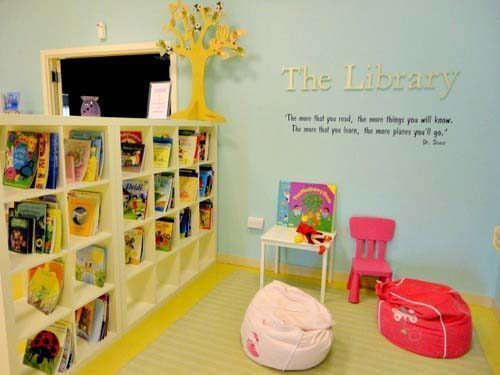
A new draft law tightening safety regulations on nurseries has met the approval of the Advisory Council, but confusion over the new rules and questions about enforcement remain.
The law, which awaits the Emir’s signature, backs up a memo sent from the Ministry of Social Affairs to nurseries in June stating that all upper floors should be used for administrative purposes only.
According to Al Sharq, those caught breaking the law could face up to two years in jail and a QR100,000 fine.
Nonetheless, some nurseries in Qatar are still operating on two floors, despite the August expiration of the grace period granted by the social affairs ministry. Others who are following the rules have called foul and asked for uniform enforcement.
Meanwhile, parents are struggling to find places for their children in nurseries and trying to keep up with the tuition increases that some daycares are instituting.
Space restrictions
The new nursery regulations here are a by-product of the fire at Villaggio mall that killed 19 people, including 13 children at daycare facility Gympanzee. The victims were unable to evacuate the mall because they were trapped upstairs and died of smoke inhalation.
But managers at daycare centers across Qatar say the new rules, which may make sense for a nursery located in the middle of a mall, are less practical in the converted residential villas that most nurseries operate out of here.
Kimberley Sheedy, manager of Starfish Lane Kids nurseries, told Doha News:
“By housing all children in the downstairs areas, children miss out on what Starfish is known for, space. Across three nurseries, we have 13 classrooms, three libraries, and nine play areas empty. That is 25 areas that children can no longer use due to the new regulations.”
Thus far, the shrinking space has caused temporary closures, reductions in class sizes, staff redundancies and increased fees in nurseries across Qatar.
But not everyone is feeling the pinch. At least half a dozen in the Doha area have chosen to flout the single-story rule, sources told Doha News.
Fabiola Barrios, director of Creative Child, says she challenged the management of one nursery about their use of both the ground and first floors:
“They told me it was Civil Defense who had authorized this nursery, and that they did it because they have very high standards, but when you ask what they are, they can’t say.”
Sources at the Ministry of Social Affairs have told Doha News that they are aware that some nurseries in Doha are not abiding by the new rules, but that these nurseries have now received their third warning letter, and if they continue to be non-compliant, “appropriate action” will be taken.
Financial pressures
As nursery owners await clarification from the government about what to do with their upper floors, many have raised their fees to cover costs or say they are considering doing so, much to the dismay of parents.
One mother whose child attends a branch of Apple Tree nursery told Doha News:
“We were given 1 month’s notice of a staggering 25 percent increase in fees,” she says. “The owners gave their reasons to be civil defense requirements, changes to the building, and the rising cost of supplies.“A petition went out for the parents of both Apple Tree branches asking for the owners to meet with us to explain these drastic fee increases. 100 + signatures were collected and yet the owners have not replied. Many parents are fed up, withdrawing their children or lowering the number of days their child attends. Parents can’t afford an unexpected 25 percent increase in fees.”
Apple Tree did not respond to requests for comment.
Increased fees could have an unwelcome effect on child safety, argues Sheedy:
“If we (Starfish) do increase the fees this may force some parents to keep their children at home”, she says. “My argument is that the Ministry of Social Affairs will have more very real concerns because parents may choose to set up childcare groups in family homes. Who will be responsible for health and safety measures in private homes?”







